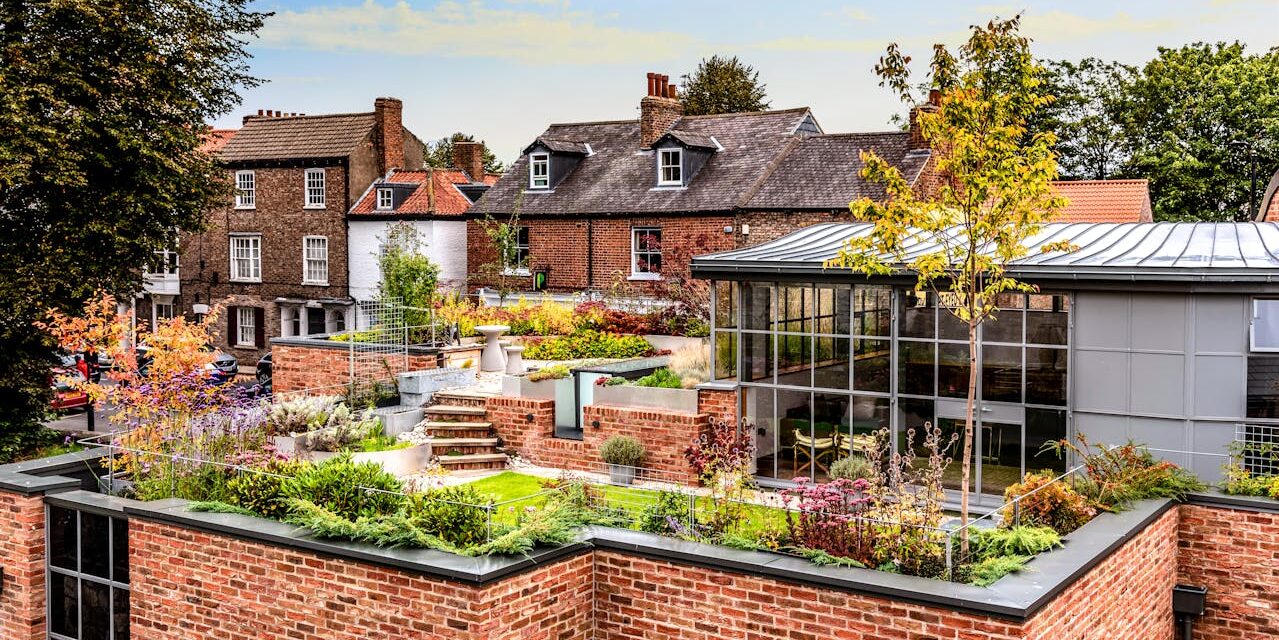Rooftop gardens are not only beautiful but they also provide an excellent respite from the hustle and bustle of city life; thus they are ideal for relaxation and meditation after a long day at work.
- A Sanctuary in the Sky
They offer a quiet beehive that is ideal for morning yoga and relaxing evenings, allowing one to find inner peace and balance. You can collect your thoughts, journal and just be one with nature for a little while.
- Lush, Sustainable Plantings
Planting native plants, flora such as moss and bamboo, and medicinal herbs cleanse the air and maintain the biodiversity; thereby helping in keeping the environment healthy and making one feel close to nature.
- Harmonious Water Features
The soothing sound of water coming from the cascading waterfalls and koi ponds is a perfect addition to the relaxing setting that is perfect for meditation practices, and it also helps to cool the area and make the environment comfortable.
- Architectural Harmony
The well-considered design of rooftop gardens that have comfortable sitting areas, yoga zones, and walkways, is based on taking advantage of the natural light and the amazing city views while at the same time enhancing privacy and peace. Another factor that blends these spaces with the environment is the usage of sustainable construction materials.
Other Benefits of Having a Rooftop Garden
- Enhances Happiness
So much more than just a green feature on top of the buildings, urban rooftop gardens provide city inhabitants with a lungful of clean air. According to a study by the University of Exeter Medical School, being around such green environments is a great remedy for mental health problems. They can equally curb pollution which may lower healthcare needs; thus, making life less stressful, leading to a happier and more productive population.
- Decreased Waste
They lengthen the lifespan of roofing materials and enable the furnace and air conditioners to work less because of their insulation features. This helps cut down on maintenance expenses and contributes to sustainability as well.
- Urban Heat Island (UHI) Effect Control
Rooftop gardens are very effective when it comes to the reduction of the UHI effect. Cities are warmer than rural areas as they mostly have heat-absorbing concrete. Rooftop gardens, by covering concrete with plants that evaporate daily, complete the daily heat-relinquishing cycle, lessening the overall temperature of the metropolis.
- Reduced Noise
A soil layer covered with a veil of plants serves as a natural sound barrier, and is quite efficient for filtering out low-frequency sounds, making the city environment less noisy.
- Effective Use of Rainwater
Rooftop gardens have direct use of rainfall with the ability to retain the excess water for future use. The annual retention can be as high as 80% in the summer and as low as 40% in the winter.
- Facilitates Urban Agriculture
Rooftop gardens are turning urban rooftops into productive farms, enabling fresh vegetables to grow among the concrete and steel of urban area buildings. In addition, they are sanctuaries for birds and a meeting point for migratory species, allowing interaction of diverse types of animals.






